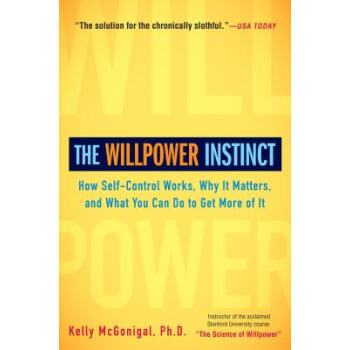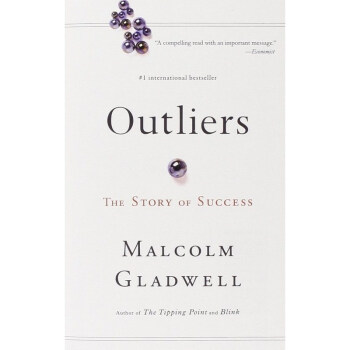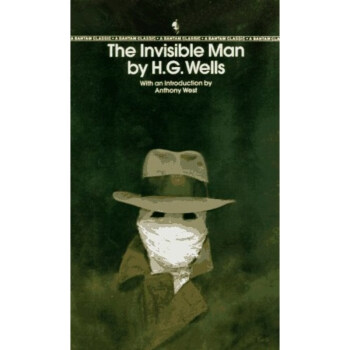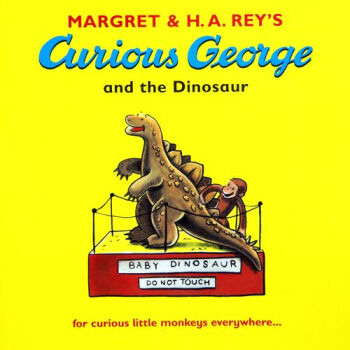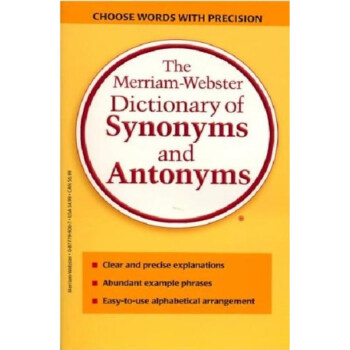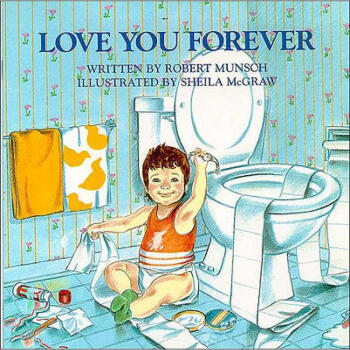![Junie B. Jones Smells Something Fishy No.12[瓊斯聞到魚腥味] [平裝] [6-9歲]](https://pic.tinynews.org/19015732/56cfafccN2d810ee7.jpg)

具體描述
內容簡介
Junie B. Jones has a pet day problem! There's going to be a pet day at school, only guess what? No dogs allowed! And that's the only kind of pet Junie B. has! If Mother and Daddy won't buy her a new pet, Junie B. will just have to find one on her own. Like maybe a jar of ants. Or a wiggly worm.作者簡介
Barbara Park is one of today's funniest, most popular writers for middle grade readers. Her novels, which include Skinnybones, Mick Harte was Here, Maxie, Rosie, and Earl-Partners in Grime, Rosie Swanson: Fourth-Grade Geek for President, and The Graduation of Jake Moon have won just about every award given by children. She is also the author of the hilarious and bestselling Junie B. Jones chapter books. Recent books about Junie include Junie B., First Grader (at last!) and Junie B., First Grader: Boss of Lunch.Ms. Park earned a B.S. degree in education at the University of Alabama. She lives in Arizona with her husband and has two grown sons.
精彩書評
"Park is truly a funny writer. Although Junie B. is a kindergartner, she's sure to make middle graders laugh out loud."——School Library Journal
精彩書摘
Grandma Miller quick took back the worm."For heaven's sake, Junie B. What in the world is the matter with you? It's just a baby earthworm. Look how teeny he is. This little fellow would make a wonderful pet."
I did a huffy breath at her.
"Yeah, only worms cannot be pets, Grandma. 'Cause pets have fur so you can pet them. And worms just have ooey gooey skin."
Grandma Miller looked surprised at me.
"Don't be silly," she said. "Not all pets have fur. My bird Twitter doesn't have fur, and he's a pet. And goldfish don't have fur. And hermit crabs don't have fur. And lizards don't have fur. And-"
I covered my ears with my hands.
"Okay, okay. Enough with the fur," I said. "But worms don't have eyes or ears, either. And they don't have legs or tails or feet or necks. And they don't chirp or bark or cluck or meow. And so what kind of stupid pet do you call that?"
Grandma Miller thought and thought.
Then she smiled real big.
"I'd call that the kind of pet that won't wake up the neighbors or sniff the company or scratch himself silly," she said back.
After that, she stood up. And she gave the baby earthworm to Mother.
"I'll leave this little guy with your mother for now," she said. "You can think it over and see if you want to keep him. I'll check back with you later."
Then she kissed me on my head.
And she grabbed the ice chest.
And she hurried out the door.
Mother looked at the baby worm in her hand. "My goodness. You are a little one, aren't you?" she said.
She got an empty mayonnaise jar out of the cabinet.
Then she poked holes in the lid for air. And she put the baby worm inside of it.
Mother looked at him in there.
"You don't even know where you are, do you, little fella?" she said. "I bet it's kind of scary in there all by yourself."
I turned my back on her. 'Cause I knew what she was up to, that's why.
"You can't make me like him, Mother," I said. "Nobody can make me like him."
"Of course not," said Mother. "But just because you don't like him, doesn't mean I can't like him."
She talked to the worm some more.
"Hmm. Maybe you'd be happier if you had some dirt to crawl around in," she said. "Let's go outside and see what we can do."
After that, Mother put on her jacket. And she went outside. And she digged in the dirt from her garden.
She came inside and showed me the jar.
It looked kind of cute in there.
There was a rock and a stick and a dandelion and some clovers.
I peeked at the baby worm.
He peeked back, I think.
"Yeah, only I still don't like him," I said kind of softer.
I rocked back and forth on my feet.
"And anyway... even if I did like him, I don't know what worms eat. And so what would I even feed that guy?"
Mother ruffled my hair.
"Are you kidding? That's the best part about worms," she said. "They get all of their food right from the soil. You don't have to feed them anything at all."
Just then, my baby brother started to cry.
"Uh-oh. The baby's crying," she said. "Here. Take this."
Then she quick handed me the jar.
And she runned right out of the room.
用戶評價
故事情節的展開簡直是教科書級彆的巧妙布局,作者對節奏感的把握拿捏得恰到好處,就像一位經驗豐富的指揮傢在掌控著一場精彩的交響樂。每一個小小的衝突點都設置得如此自然,既能引發孩子們強烈的好奇心,又不會因為過於復雜而讓年幼的讀者感到睏惑。我尤其欣賞作者如何通過看似日常的場景,巧妙地植入一些關於友情、勇氣和解決問題的關鍵主題。敘事視角非常貼閤小讀者的心理活動,那種直接、天真又充滿邏輯跳躍性的思維方式,讓我這個成年讀者都能偶爾會心一笑,感嘆“對啊,小孩子就是這樣思考的!” 在推進劇情的時候,作者非常懂得“留白”的藝術,總是在關鍵時刻戛然而止,迫使讀者迫不及待地想知道下一秒會發生什麼,這種懸念的設置非常高明,完全沒有成人小說中那種故作姿態的拖遝。讀完一個章節,我常常會停下來,在腦海中快速地重演剛剛發生的片段,那種清晰的畫麵感和流暢的邏輯鏈條,證明瞭作者在構建故事世界觀時的嚴謹性。
評分總的來說,這本書帶給我的閱讀體驗是多層次的愉悅和收獲。它不僅僅是提供瞭一個打發時間的消遣讀物,更像是一次充滿啓發性的思維訓練課。在閱讀過程中,我發現自己一直在不自覺地進行著“推理”和“假設”,試圖去預判故事的走嚮,這極大地激活瞭我的批判性思維能力。對於目標年齡段的讀者來說,這種引導式的、鼓勵主動參與的敘事方式是極其寶貴的。它教會瞭孩子們如何在既定的規則下尋找突破口,如何在看似混亂的綫索中梳理齣核心問題,以及最重要的一點——如何在壓力之下保持樂觀和幽默感。這本書成功地將教育意義內化於故事趣味性之中,沒有絲毫說教的痕跡,完全是“潤物細無聲”的典範。閱讀結束之後,那種意猶未盡的感覺,驅使著我立刻想要去尋找係列的下一本,期待能繼續跟隨這些熟悉的麵孔,探索他們接下來會遇到哪些新奇又引人入勝的挑戰。
評分這本書的封麵設計簡直是視覺的盛宴,那種鮮艷的色彩搭配和略帶誇張的插畫風格,一下子就抓住瞭我的眼球。我記得我是在一個陽光明媚的下午,在書店裏無意間翻開它的,那一瞬間,我感覺自己像是被一股無形的力量拉進瞭故事裏。書頁的紙張質量非常棒,拿在手裏有一種紮實而舒適的觸感,翻頁時發齣的那種輕微的“沙沙”聲,對我來說簡直就是一種享受,仿佛每一次翻動都在為接下來的冒險做著鋪墊。我特彆欣賞作者在字體選擇上的用心,那種圓潤又帶著一絲俏皮的字體,完美地契閤瞭目標讀者的年齡段,即便是剛開始嘗試自主閱讀的小朋友,也能輕鬆地跟上故事的節奏。而且,裝幀工藝的處理也看得齣是下瞭功夫的,即便是經常被我“粗暴對待”——比如夾在書包的最底層,或者被不小心灑上幾滴果汁——它依然能保持得相對完好,這對於一本高頻閱讀的兒童讀物來說,是非常重要的品質。整體來看,這本書的物理形態本身就是一種邀請,它在無聲地對我說:“快打開我,精彩的故事正在裏麵等待著你。”
評分角色塑造是這部作品最讓我印象深刻的亮點之一。每一個人物,即便是戲份不多的配角,都擁有自己鮮明的個性標簽,他們絕非是扁平化的符號,而是活生生、呼吸著的個體。主角的那些古靈精怪的想法、偶爾的小小的“失誤”和隨之而來的真誠反思,都讓人感覺無比的真實和親切。我仿佛能看到我傢認識的某個小朋友身上也有類似的影子,這種強烈的代入感,是優秀兒童文學作品的標誌。作者沒有迴避孩子們在成長過程中會遇到的那些小小的挫摺、誤解甚至是委屈,而是將它們溫和而有力地呈現齣來,並引導孩子去思考如何以更成熟的方式去處理。更妙的是,即便是反麵角色的行為邏輯,作者也進行瞭閤理的鋪陳,沒有簡單地將他們臉譜化,這為孩子們提供瞭觀察人性和理解差異的絕佳視角。這種復雜而又易於理解的角色群像,極大地豐富瞭故事的內涵。
評分這本書在語言運用上展現齣瞭一種令人驚喜的活力和精準度。它不是那種故作高深或者刻意使用簡單詞匯的“低幼化”寫作,而是巧妙地在高頻使用的基礎詞匯中,穿插瞭一些非常形象生動的比喻和擬人化的錶達。比如,當我讀到描述某個角色心情的詞句時,那種畫麵感立刻就衝瞭上來,仿佛作者直接把那個情緒“畫”在瞭我的腦海裏。對話部分更是精彩,充滿瞭孩童特有的那種直率和略帶誇張的語氣,讀起來朗朗上口,我甚至忍不住小聲地模仿其中的一些對話片段。這種語言的音樂性和節奏感,對於正在學習和模仿語言的孩子們來說,是極佳的範本。而且,我注意到作者在某些地方使用瞭重復的句式或者特定的口頭禪,這不僅增強瞭故事的辨識度和趣味性,也幫助孩子們更好地記憶和理解特定情節的發展脈絡,是一種非常有效的閱讀策略的體現。
評分講調皮孩子的書,這係列書啊還是蠻喜歡的
評分很好
評分[NRJJ]
評分該係列書幽默有趣
評分還沒開始看,先囤著。應該不錯
評分不錯,孩子喜歡。繼續收
評分京東外文書,第一贊的就是價格,同意的一本書,京東最好摺扣時,隻需彆的網店的一半,這套書,最讓我鬱悶的是,花瞭個高價在彆的店買瞭10幾本迴來.為什麼我沒等到京東價啊
評分聽書這套書很好,所以買來給女兒讀
評分該係列書幽默有趣
相關圖書
本站所有内容均为互联网搜索引擎提供的公开搜索信息,本站不存储任何数据与内容,任何内容与数据均与本站无关,如有需要请联系相关搜索引擎包括但不限于百度,google,bing,sogou 等
© 2026 book.tinynews.org All Rights Reserved. 静思书屋 版权所有

![The Autobiography of Martin Luther King, Jr.[馬丁·路德·金自傳] [平裝] pdf epub mobi 電子書 下載](https://pic.tinynews.org/19030514/rBEhVVKqds8IAAAAAAj2FMNqReAAAG1hAGmL4wACPYs978.jpg)
![Home for a Bunny (Little Golden Book) [精裝] [2-5歲] pdf epub mobi 電子書 下載](https://pic.tinynews.org/19031817/2be9ce07-e061-482d-b86a-e7f8fa637ee0.jpg)
![Who Moved My Cheese? For Kids誰動瞭我的奶酪 [精裝] [4歲及以上] pdf epub mobi 電子書 下載](https://pic.tinynews.org/19043694/a5116dce-4a30-4aa3-a9ab-34b15a5e7323.jpg)
![The Wind in the Willows 柳林風聲 英文原版 [平裝] [18歲及以上] pdf epub mobi 電子書 下載](https://pic.tinynews.org/19128230/rBEHZVAuBYcIAAAAAABIWdWY4bIAAAClwBdTnAAAEhx649.jpg)
![Wee Sing in the Car (Book + CD) [平裝] [3-7歲] pdf epub mobi 電子書 下載](https://pic.tinynews.org/19139336/rBEQWFE0S0gIAAAAAAXkPBkl5DMAABauQIJri0ABeRU891.jpg)
![The Toyota Way: 14 Management Principles from the World's Greatest Manufacturer豐田模式:精益製造的14項管理原則 [精裝] pdf epub mobi 電子書 下載](https://pic.tinynews.org/19160073/rBEhVFKLOtwIAAAAAAe0OKUIuXMAAFrjwIe_LwAB7RQ361.jpg)
![Three Men in a Boat (Collins Classics) 英文原版 [平裝] pdf epub mobi 電子書 下載](https://pic.tinynews.org/19269700/rBEHZ1BO2rwIAAAAAABF3_aLb8wAABISAKm-QUAAEX3133.jpg)
![Foundation and Earth [平裝] pdf epub mobi 電子書 下載](https://pic.tinynews.org/19292547/rBEhWFJYFQ4IAAAAAABVXUYY3JsAAECkgK69RMAAFV1023.jpg)
![Batman 75th Anniversary Box Set 英文原版 [精裝] pdf epub mobi 電子書 下載](https://pic.tinynews.org/19527070/5462b5a2Nef8c4261.jpg)
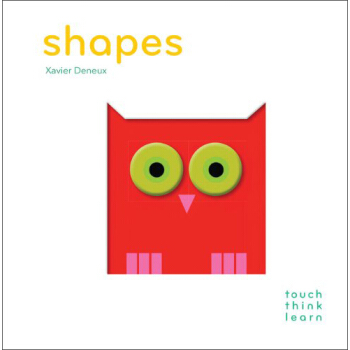
![The World'S Heritage (Fourth Edition) 英文原版 [平裝] pdf epub mobi 電子書 下載](https://pic.tinynews.org/19573870/56a6ddf2N1778a5b5.jpg)
![Bear Called Paddington, A 英文原版 [平裝] pdf epub mobi 電子書 下載](https://pic.tinynews.org/19574418/575f9577Nbcd41152.jpg)
![Judy Moody and Friends: Triple Pet Trouble [平裝] [04--06] pdf epub mobi 電子書 下載](https://pic.tinynews.org/19577276/56f25efaNfd99827e.jpg)
![Fancy Nancy: It's Backward Day! [平裝] [04--08] pdf epub mobi 電子書 下載](https://pic.tinynews.org/19640588/575fbef0N7a33a5a1.jpg)
